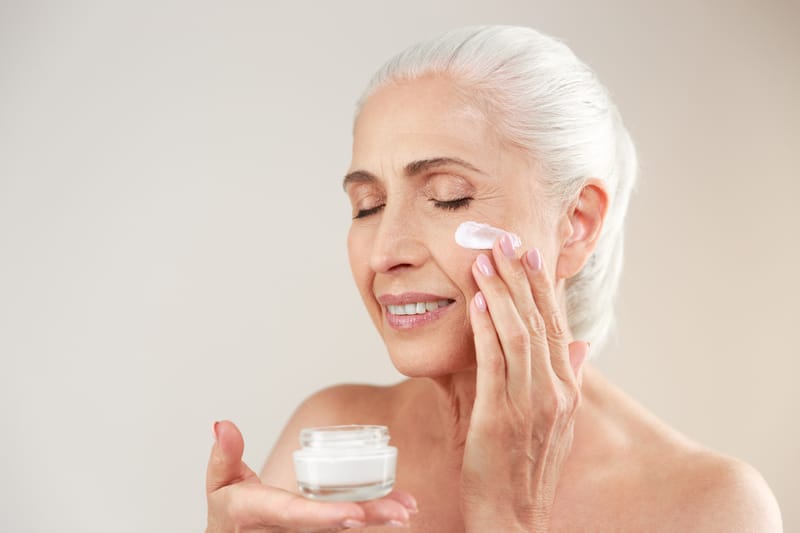Unlocking the Secrets of Ceramide Moisturizer: A Skin Care Revolution
Key Takeaways:
- Understand the critical role of ceramides in maintaining skin health and how ceramide moisturizers support the skin's natural moisture barrier and protective layer.
- Discover the benefits of incorporating a ceramide moisturizer into your daily skincare routine, including hydration and protection against environmental damage.
- Learn how to choose the right ceramide moisturizer for your skin type and the best practices for application to maximize its effectiveness.
Ceramides are the unsung heroes of skin health, often overlooked but vitally important. These essential lipid molecules are found naturally in the skin and play a crucial role in maintaining the skin's barrier and retaining moisture. As we dive into the world of ceramide moisturizers and their active ingredients, we'll explore how these powerful products work and why they should be a staple in your skincare regimen.
The Science Behind Ceramides
Ceramides are a type of lipid that are a fundamental component of the skin's structure, making up over 50% of the skin's composition. They are essential for the skin's barrier function, which protects against environmental aggressors and prevents moisture loss. When the skin's ceramide levels are depleted, it can lead to dryness, irritation, and an increase in sensitivity.
Types of Ceramides
There are natural and synthetic ceramides. Natural ceramides are found in the outer layers of your skin, as well as in animals like cows and plants like soy.
Synthetic ceramides (also known as pseudoceramides) are man-made. Because they're free from contaminants and more stable than natural ceramides, synthetic ceramides are more commonly used in skin care products.
Ceramides are made up of a substance called sphingosine. Sphingosine is a chain of carbon atoms with an amino acid attached to it. It has different forms that bind to other fatty acids to form ceramides.
Based on the form of sphingosine and the fatty acid that binds it, there are 12 types of ceramides, named ceramide 1 to 12. You're likely to see the following ceramides listed on labels of your skin care products:
Ceramide 1, also called ceramide EOS
Ceramide 2, also called ceramide NS or NG
Ceramide 3, also called ceramide NP
Ceramide 6-II, also called ceramide AP
Ceramide 9, also called ceramide EOP
Phytosphingosine
Sphingosine
How Ceramide Moisturizers Work
The skin barrier is your top layer of skin, made up of dead cells, proteins, fatty acids and lipids including natural ceramides. These ceramides are essentially the glue that holds our skin cells together to form a healthy skin barrier. Ceramide moisturizers are designed to mimic the natural lipid composition of the skin. By replenishing the skin's ceramide content, these moisturizers help restore the barrier function, leading to improved hydration and resilience against external stressors. They are particularly beneficial for those with dry or aging skin, as ceramide levels naturally decrease with age. Using skin care products with added ceramides can restore optimal levels of these lipids.
The Benefits of Ceramide Moisturizers
Regular use of a ceramide moisturizer can transform the skin by providing deep hydration and reinforcing the skin's natural defenses. This results in a smoother, plumper skin texture and a reduction in the appearance of fine lines and wrinkles. Moreover, ceramide moisturizers can help soothe sensitive skin and may aid in the treatment of certain skin conditions like eczema and psoriasis.
Ceramides and Skin Hydration
Hydration is key to maintaining a youthful and radiant complexion. Ceramide moisturizers excel in locking in moisture, thanks to their ability to fortify the skin's barrier. This not only prevents water loss but also ensures that the skin remains supple and hydrated throughout the day. Moisture affects the aging of skin in a big way. In a study published in 2019 in Dermatologic Therapy, study participants with dry skin applied a ceramide-containing moisturizer twice a day for 28 days and reported seeing significant improvements in hydration, barrier function, and skin pH.
Choosing the Right Ceramide Moisturizer
With a plethora of ceramide moisturizers on the market, selecting the right one can be daunting. It's important to consider your skin type and any specific concerns you may have. For example, those with oily skin might opt for a lightweight, non-comedogenic formula, while those with dry skin might prefer a richer, more emollient cream.
Application Tips for Maximum Efficacy
To get the most out of your ceramide moisturizer, apply it to clean, slightly damp skin. This helps the product penetrate more effectively. Additionally, using a ceramide moisturizer in conjunction with other hydrating products, such as hyaluronic acid serums, can amplify the moisturizing effects.
The Role of Ceramides in Anti-Aging
Ceramide moisturizers are not just for hydration; they also play a significant role in anti-aging skincare. By reinforcing the skin's barrier, they help prevent the environmental damage that can accelerate aging. Consistent use can lead to a reduction in the signs of aging, such as fine lines and a loss of firmness.
Ceramides for Sensitive Skin
For those with sensitive irritated skin, ceramide moisturizers can be a game-changer. They are typically formulated without irritants and can help calm inflammation and redness. By strengthening the skin's barrier, they also make the skin less prone to reactions from external irritants.
The Impact of Environmental Stressors on Skin Ceramides
Pollution, UV exposure, and other environmental factors can deplete the skin's natural ceramides, weakening the barrier and leading to skin issues. Incorporating a ceramide moisturizer into your skincare routine can help counteract these effects, providing an extra layer of protection for your skin.
Ceramide Moisturizers and Skin Conditions
Ceramide moisturizers are often recommended by dermatologists for those with skin conditions like eczema, psoriasis and dry skin types. They can help alleviate symptoms by restoring the skin's barrier, reducing dryness, and providing relief from itching and discomfort.
The Evolution of Ceramide Skincare Products
As skincare science advances, ceramide moisturizers continue to evolve. New formulations are being developed that combine ceramides with other beneficial ingredients, such as peptides and antioxidants, to enhance the skin's overall health and appearance.
How to Integrate Ceramide Moisturizers into Your Routine
This is one of the few times when you can see a product start to work immediately since hydration begins right after application. And so, once you start using a product with ceramides, expect to see results anywhere from right after application to the next day.
Generally speaking, ceramides can be incorporated at any part of your routine, but being featured in moisturizers is key: It can provide great benefit when used in a moisturizer, especially at nighttime, when it's most important for the skin to repair and maintain hydration.
Integrating a ceramide moisturizer into your skincare routine is simple. It can be used both morning and night, and should be applied after cleansing and any serums. For daytime use, follow up with a broad-spectrum sunscreen to protect against UV damage.
The Future of Ceramide Moisturizers in Skincare
The future of ceramide moisturizers looks promising, with ongoing research into how these lipids can further benefit skin health. As our understanding of the skin's barrier function grows, so too will the potential of ceramide-infused products to address a wide range of skin concerns.
Ceramide Moisturizers: A Staple for All Skin Types
While ceramide moisturizers are particularly beneficial for dry and aging skin, they are suitable for all skin types. Even those with oily or acne-prone skin can benefit from the barrier-strengthening properties of ceramides without worrying about clogging pores or causing breakouts.
Summary
Ceramide moisturizers are a cornerstone of effective skincare, offering deep hydration, barrier repair, and protection against environmental damage. They are suitable for all skin types and can be particularly beneficial for those with dry, sensitive, or aging skin. By choosing the right product and incorporating it into your daily routine, you can harness the power of ceramides to achieve a healthier, more resilient complexion.
FAQ Section
Q: Can ceramide moisturizers be used with other skincare products? A: Yes, ceramide moisturizers can be used in conjunction with other skincare products. They work well with serums, especially those containing hyaluronic acid, and should always be followed by sunscreen during the day.
Q: Are ceramide moisturizers only for people with dry skin? A: No, ceramide moisturizers are beneficial for all skin types. While they are particularly hydrating for dry skin, they can also help oily and acne-prone skin by strengthening the skin's barrier without causing breakouts.
Q: How often should I use a ceramide moisturizer? A: A ceramide moisturizer can be used daily, both in the morning and at night. For best results, apply it to clean, slightly damp skin to enhance absorption and effectiveness.
For more information about Ceramide Moistureizers. Please click the link below.







